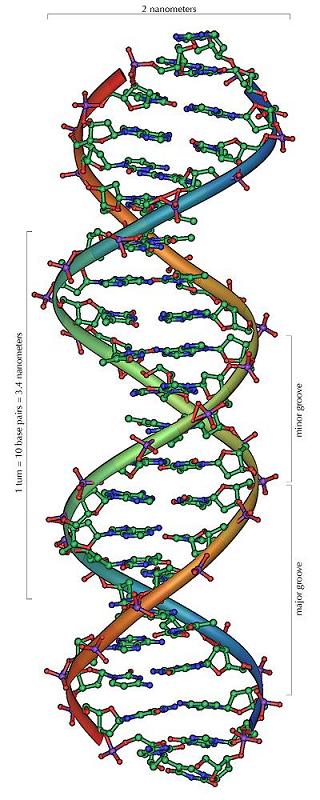In light of the size of the DNA segments - the size of a pair of bases in DNA is about 0.33 nanometers - it is possible to store a large amount of information in a very small volume

Researchers at the University of California have found a way to get inside your body and bloodstream. No, they are not spiritual teachers or mad scientists. An integrated team of researchers from the departments of bioengineering, computer science, engineering, biochemistry and electrical engineering and from the center for nanosciences and engineering are competent when it comes to the intelligent use of DNA.
The researchers found a method to encode digital information using DNA. The current method is based on the length of the segments obtained by partial cleavage instead of the full content of the sequence of DNA bases. As a result, the method does not require the use of expensive sequencing devices. What is the importance of this finding? The human genome contains information equivalent to an amount of 750 megabytes - a considerable amount of storage volume. However, only about three percent of DNA is used to assemble the more than twenty-two thousand genes that make us who we are. The remaining ninety-seven percent make it possible to encode enough information in the genome in such a way that this information is constantly saved and copied.
In view of the size of the DNA segments - the size of a pair of bases in DNA is about 0.33 nanometers - it is possible to store a large amount of information in a very small volume. By storing messages in the DNA, companies can label items to verify their reliability, as well as send information in a hidden and encrypted manner to a specific destination. "Already today there are companies that use DNA to label items and verify their authenticity, a fact that makes it difficult to forge these items," says Stefano Lunardi, an associate professor in the Department of Computer Science and Engineering at the University of California. For example, the British company "Redweb Security" developed a product known as "i-powder" which tags DNA and another company called "PSA DNA Authentication services" which tags original memorabilia of famous sportsmen. "We, at UCR, have developed a method to encode a message in DNA in a way that does not require expensive floor instrumentation," Lunardi notes. "It is true that the decoding step requires a "wet" laboratory procedure, but this process is significantly convenient and easy."
The article, titled: "Length-based encryption of binary information in DNA," was published by the "American Chemical Society" in the journal "Langmuir" in December 2007.
http://www.sciencedaily.com/releases/2008/02/080224150305.htm

3 תגובות
Does it have slightly more everyday uses?
It seems that any attempt to read the information requires a laboratory.
A way to store information using DNA has been developed ???
This is not new! It has been around for years!!
what years Billions of years!!!
With the blessing of Letz bursting forth,
Ami Bachar
A computer the size of a game cube.
Coming Soon!
It's fun to imagine creative applications for storing information using DNA.
Will the CDs be replaced with a kind of crumbs?
A wonderful discovery.